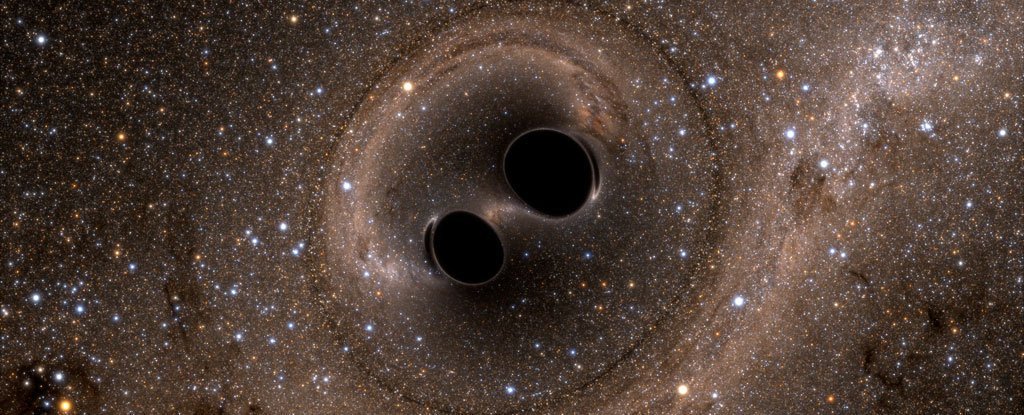
From ScienceAlert
When scientists finally detected the existence of gravitational waves last year, it wasn't just a landmark moment confirming Einstein was right all along.Read more: https://www.sciencealert.com/we-vastly-underestimated-how-many-black-holes-are-lurking-in-spaceThat cosmos-spanning signal was traced to the ancient merging of two black holes some 1.3 billion years ago. Forget worlds colliding – this merger was unimaginably more intense and powerful – and the fact it happened at all means we may have overlooked something huge.
"Fundamentally, the detection of gravitational waves was a huge deal, as it was a confirmation of a key prediction of Einstein's general theory of relativity," says astrophysicist James Bullock from the University of California, Irvine.
"But then we looked closer at the astrophysics of the actual result, a merger of two 30-solar-mass black holes. That was simply astounding and had us asking, 'How common are black holes of this size, and how often do they merge?'"
For 18 months after LIGO's historical discovery, Bullock's team ran theoretical calculations on what we know about galaxies and stars – and the unquenchable black holes that form in their wake.
Having done the math for a kind of 'cosmic inventory', the researchers think we've vastly underestimated how many of these dark voids are out there lurking in space – and say there are probably tens of millions of them throughout the Milky Way, maybe even more.
"We think we've shown that there are as many as 100 million black holes in our galaxy," says Bullock.
Stellar-remnant black holes are born when massive stars collapse on themselves, having run out of fuel at the end of their lives.
Follow @contentjunkie to stay up to date on more great posts like this one.

